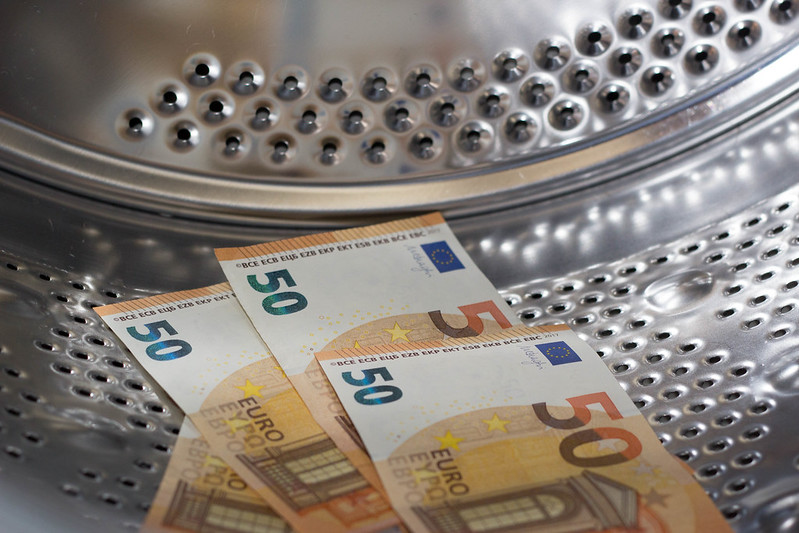The European Court of Justice has banned one of the EU’s main anti-money laundering measures.
Cross-posted from Tax Justice Network

RUSSIAN oligarchs can more easily evade EU sanctions today than at the start of Russia’s invasion of Ukraine, following a decision by the European Court of Justice late last year to ban one of the EU’s most powerful anti-money laundering measures. The court ruled the new transparency measures violate the privacy of a plaintiff, who it’s now revealed received nearly €100 million in loans from Russian tycoons and has been involved with over 100 companies spread across tax havens.
The plaintiff was also found to have been publicly posting details about his travels and whereabouts on social media on the same day the court ruled in favour of his argument that the transparency measures put him at risk of being kidnapped while travelling.
Efforts to sanction Russian oligarchs and companies in the wake of the invasion immediately came up against a wall of financial secrecy cultivated by decades of rich countries courting finance from dictators, tax evaders and money launderers. In response, last year the Tax Justice Network published 10 measures governments can implement to expose sanctioned Russian oligarch’s hidden assets. While several taskforces were setup by the US and EU governments to combat sanctions evasion, little to no progress has been made towards these 10 measures. The European Court of Justice’s decision to ban public access to beneficial ownership registers has now added an additional level of opacity beneath which sanctioned Russian oligarchs can hide.
The court ruled as invalid the legal requirements on corporations and other legal entities to publicly disclose the identities of their beneficial owners – that is, the true owners made of flesh and blood who control and benefit from the legal vehicles. EU countries passed the requirements into law in recent years as a direct response to the financial secrecy exposed by the Panama Papers, LuxLeaks and other similar investigations. By requiring corporations and other entities to publicly disclose who truly owns them, public beneficial ownership laws are designed to prevent their owners from escaping the rule of law, which can mean preventing billionaires from evading tax as well as seizing funds from sanctioned oligarchs and preventing organised crime and human traffickers from laundering money and financing illegal activity.
Patrick Hansen, the wealthy plaintiff in whose favour the European Court of Justice ruled, was revealed this month in an investigation by the OCCRP to have been the owner or director of over 110 companies registered around the world, including in well-known secrecy havens like the British Virgin Islands and Luxembourg. Many of the companies which Hansen directed were owned by Russian tycoons, and the private jet company Hansen runs – and publicly posts about on social media – was found to have received nearly a €100 million in loans from Russian businessmen operating in the gas business.
The European Court of Justice ruled that having to disclose his information on the Luxembourg public beneficial ownership register would put Hansen at risk of kidnapping during foreign travels because of his wealth. However, throughout the course of the case, Hansen was regularly using his public social media accounts to divulge far more revealing information about his wealth, business and travels than he would ever have been required to disclose on the public register (ie the companies he owns or controls, his full name and his birth month and year).
Hansen regularly used Facebook’s “check-in” and geotagging feature to publicly post about his visits to restaurants, airports, wineries, tourist hotspots and other readily identifiable and publicly accessible places. Hansen told the OCCRP that he “did not see a contradiction between using social media and seeking privacy in his business arrangements.” Hansen regularly used his Facebook and Instagram account to promote his private jet company, to share updates about the business’s work, acquisitions, partnerships and dealings, and to make his role in the company as CEO apparent. He also posted videos of his visits to the company’s construction site and offices, answered questions about the business in comments below his posts, and on one occasion commented on hopes for “a huge profit” (translated).
The court ruling will now put more weight on the role of investigative journalists and whistleblowers in bringing to light information on who own companies operating in the EU. Last week, a separate EU court, the European Court of Human Rights, upheld the rights of one of the whistleblowers behind the LuxLeaks investigation. The European Court of Human Rights ruled in favour of Raphael Halet, a former employee of accounting firm PwC, saying his 2016 conviction for leaking data about Luxembourg’s tax deals with large corporations violated his right to freedom of expression. Data leaked by Halet and others was central to the high-profile LuxLeaks investigation by the International Consortium of Investigative Journalists in 2014, helping to expose the industrial scale on which Luxembourg tax authorities were rubber-stamping corporate tax abuse schemes and draining huge amounts of revenue from the public coffers of other countries.
Thanks to many generous donors BRAVE NEW EUROPE will be able to continue its work for the rest of 2023 in a reduced form. What we need is a long term solution. So please consider making a monthly recurring donation. It need not be a vast amount as it accumulates in the course of the year. To donate please go to HERE.


Be the first to comment